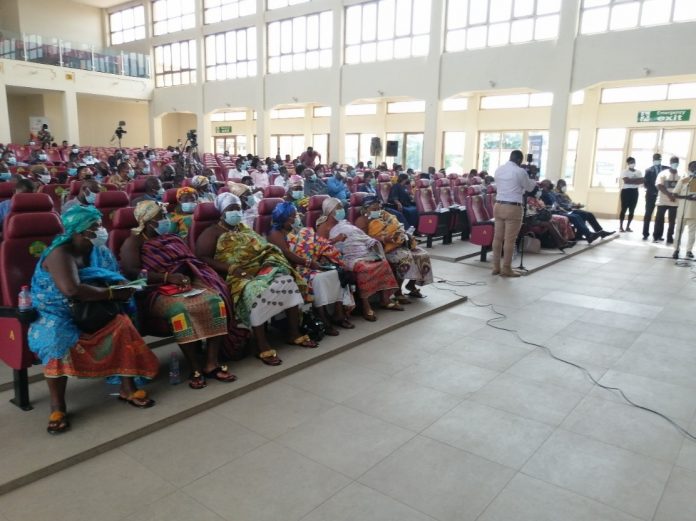
The Public Interest and Accountability Committee (PIAC) has reiterated its call for the government to consider other sources of funding for the implementation of the flagship Free Senior High School (FSHS) programme, other than petroleum funds.
The FSHS programme, in its fourth year of implementation since its introduction in September 2017, which is considered to be a good social intervention, has solely been funded through petroleum revenue.
However, the chairman of PIAC, Prof. Adom Frimpong, said due to the volatile nature of the petroleum revenues, funding sources for the FSHS programme should be diversified.
For instance, the year 2020 marked a reduction in annual production volumes after three years of consecutive oil production increases. Production of crude declined by 6.3% from the 2019 volume leading to a sharp decline in petroleum revenue, of 31%. Total revenue accrued to the Petroleum Holding Fund (PHF), in 2020, was US$638,643,030.56, compared to US$925,035,879.84.
The development was attributed to unfavourable international crude oil prices, spurred by the global outbreak of the coronavirus pandemic.
Prof. Frimpong, who was addressing participants during the ‘Middle Belt Forum,’ in Kumasi, on 10 years management and use of petroleum revenues noted that as it stands, in the absence of ‘oil money’ the FSHS programme cannot be sustained.
Furthermore, he said PIAC would want the state to revise the thinly-spread of ‘oil money’ for development projects, and embark on legacy projects such as the construction of Terminal 3 of the Kotoka International Airport (KIA), among a few other examples.
He also said efforts must be made to ensure value for money with reference to projects funded by oil money.
The ‘Middle Belt Forum,’ among others, is expected to enable Ghanaians to have an oversight of how oil money has contributed to the country’s development while rendering an account to the public. It was also to solicit for the public’s opinion on the work of the committee and what is expected of them moving into the next decade.
Responding to some of the concerns raised by participants during the open forum, in an interview, the Technical Manager of PIAC, Mark Obeng Adu Agyemang said PIAC had recommended the use of oil revenue as an addition instead of a replacement for most of the traditional programmes and projects earmarked, even before the discovery of oil in commercial quantities. “Averagely, over the past decade, petroleum revenue has constituted just 6% of total government revenue.”
But he said it is following the expectations that the Ghanaian public had at the struck of oil in 2007 that has partly contributed to the overreliance on oil revenue to attempt to solve most societal problems.
He maintained that the Petroleum Revenue Management Act (PRMA) provides for the use of petroleum funds with a list of priority areas, in the absence of a National Development Plan, in order that areas outside the list could be funded from other revenue sources.
Mr. Agyemang disclosed that for example, oil revenue was used to finance over 4,000 projects in the country. “When that happens, what it means is that the monies have been stretched thinly to cover these projects, with some projects receiving as little as GH¢5,000 to GH¢10,000 and so on. When you consider the budgets of these projects, sometimes it is over GH¢30,000. The question is that what will GH¢20,000 do in the scheme of these huge projects budget?”
Against this background, he repeated the charge for governments to concentrate the utilization of the oil revenue in order to bring the needed benefits expected from it.
PIAC, for the next decade, is aiming to ensure citizens to take ownership of the committee, as well as strengthen the already existing relationship with Parliament. “This is because the committee reports directly to Parliament and is the legislative body that has the power to direct and also, summon institutions and individuals who are found wanting in the management and utilization of petroleum revenues.”









